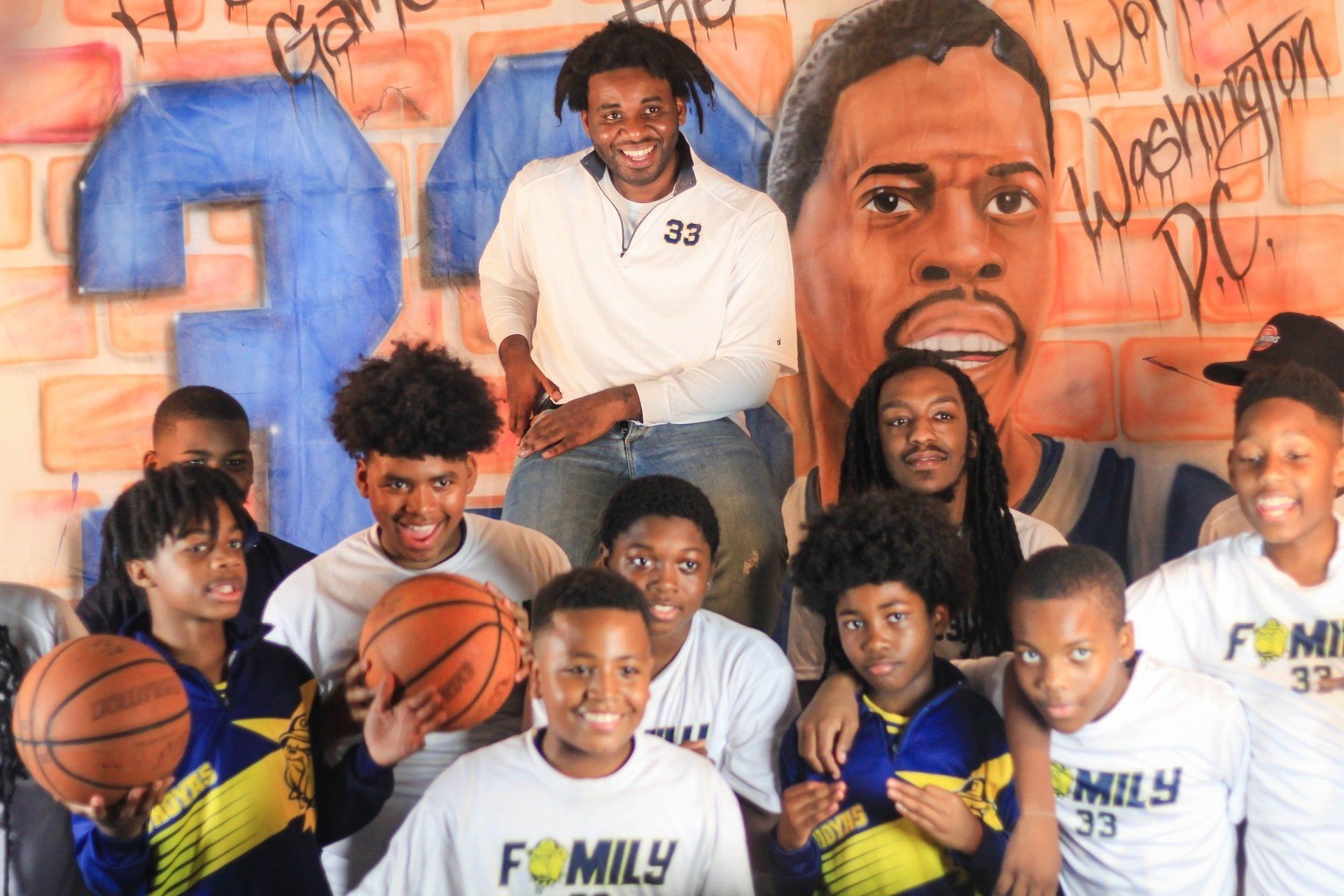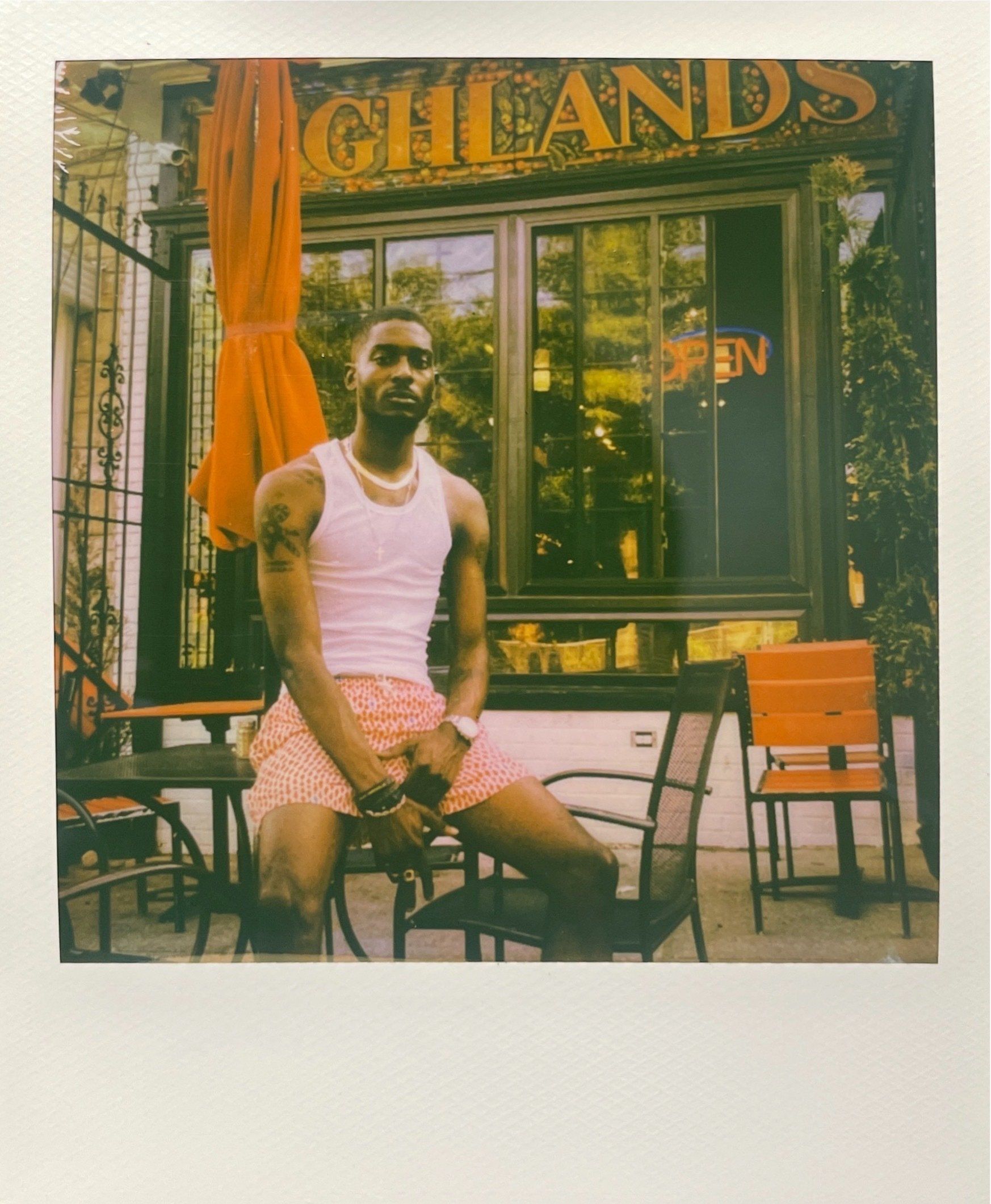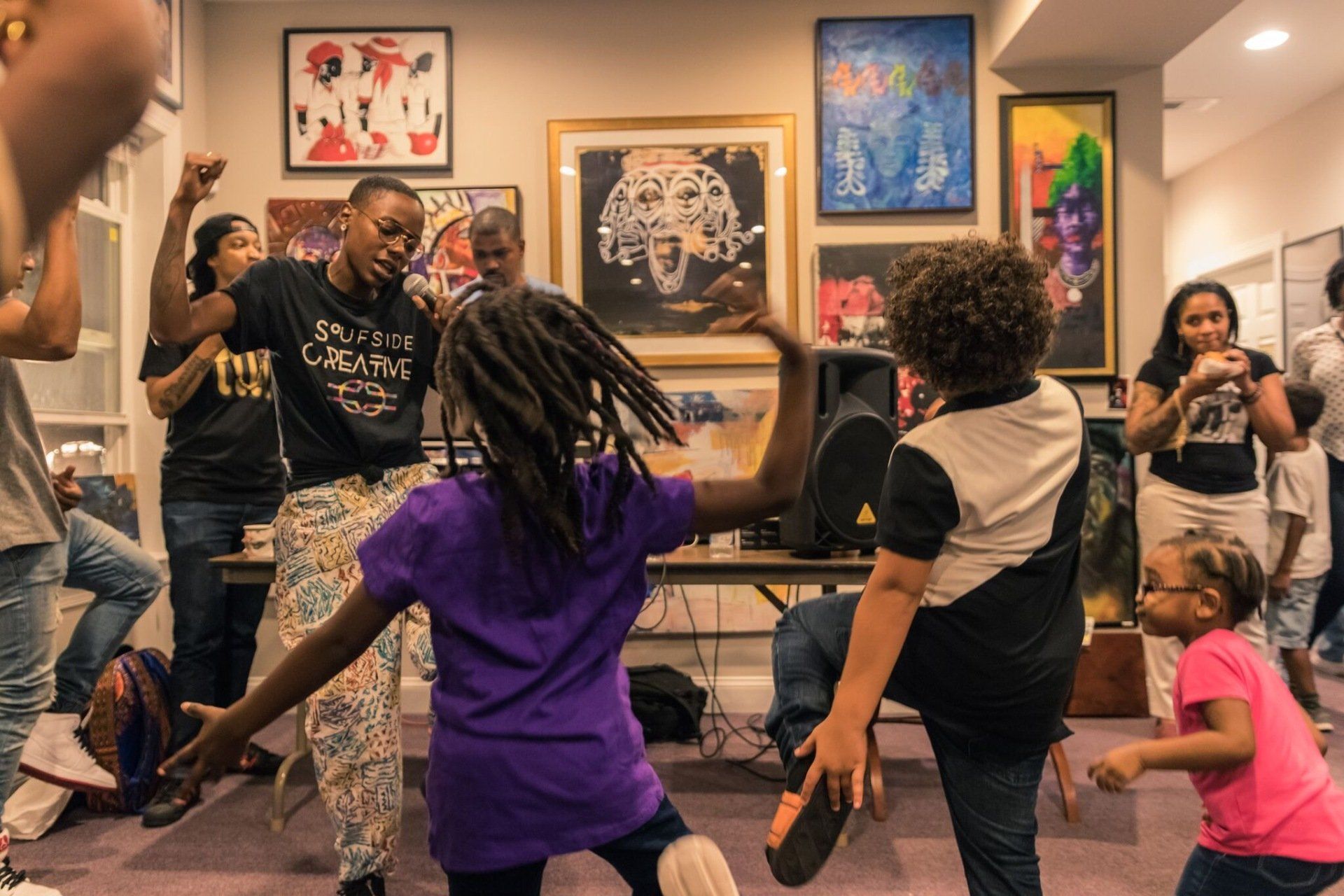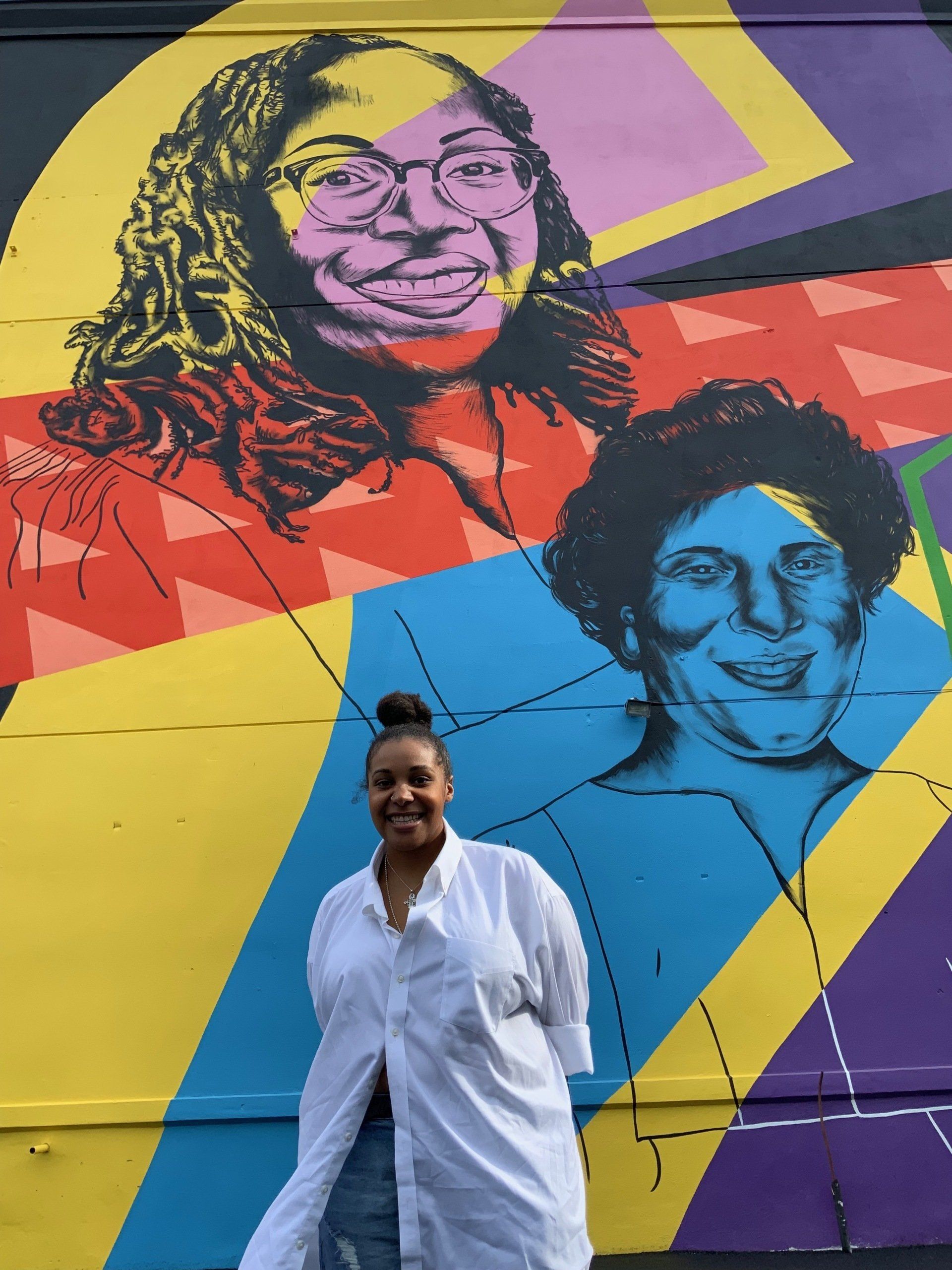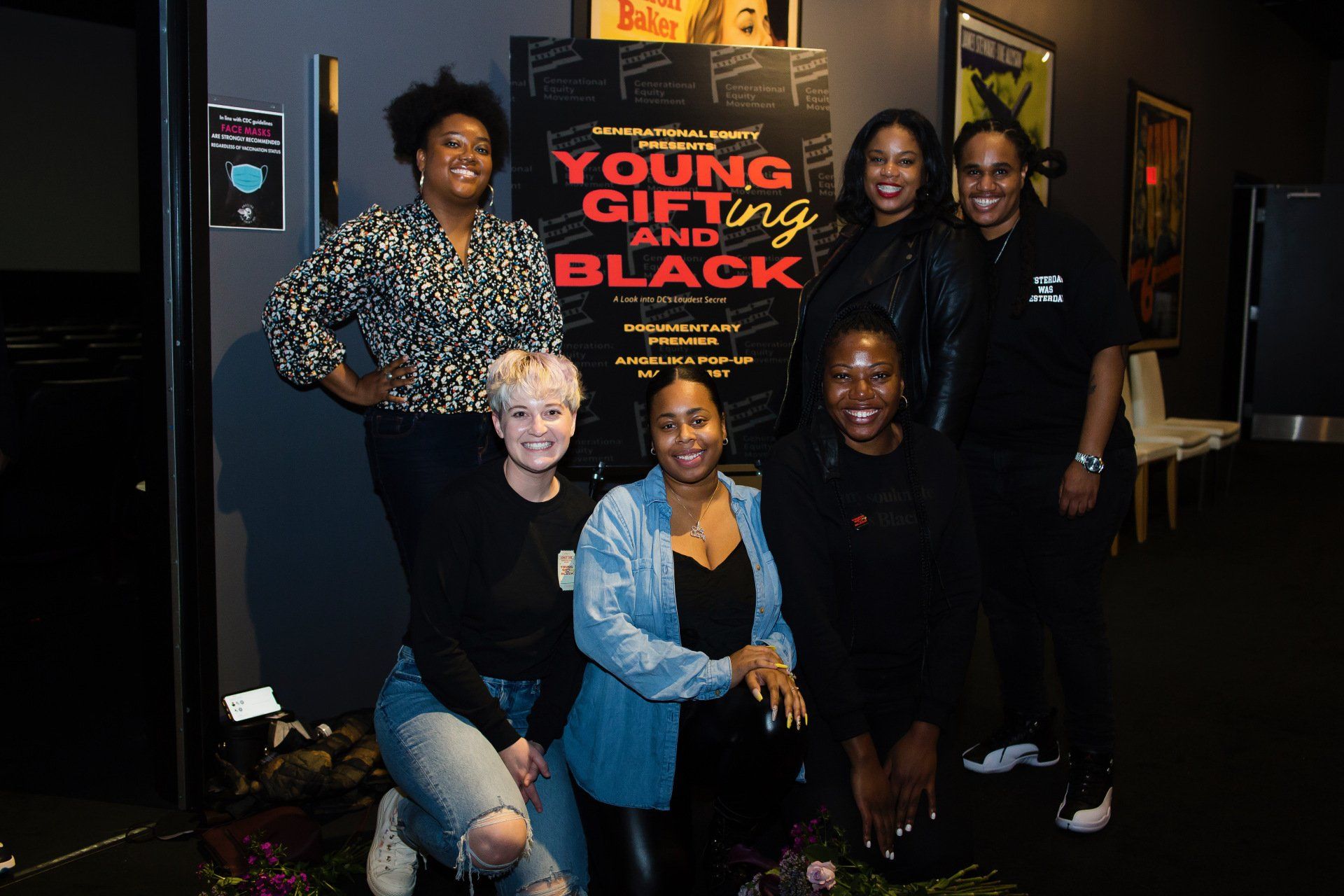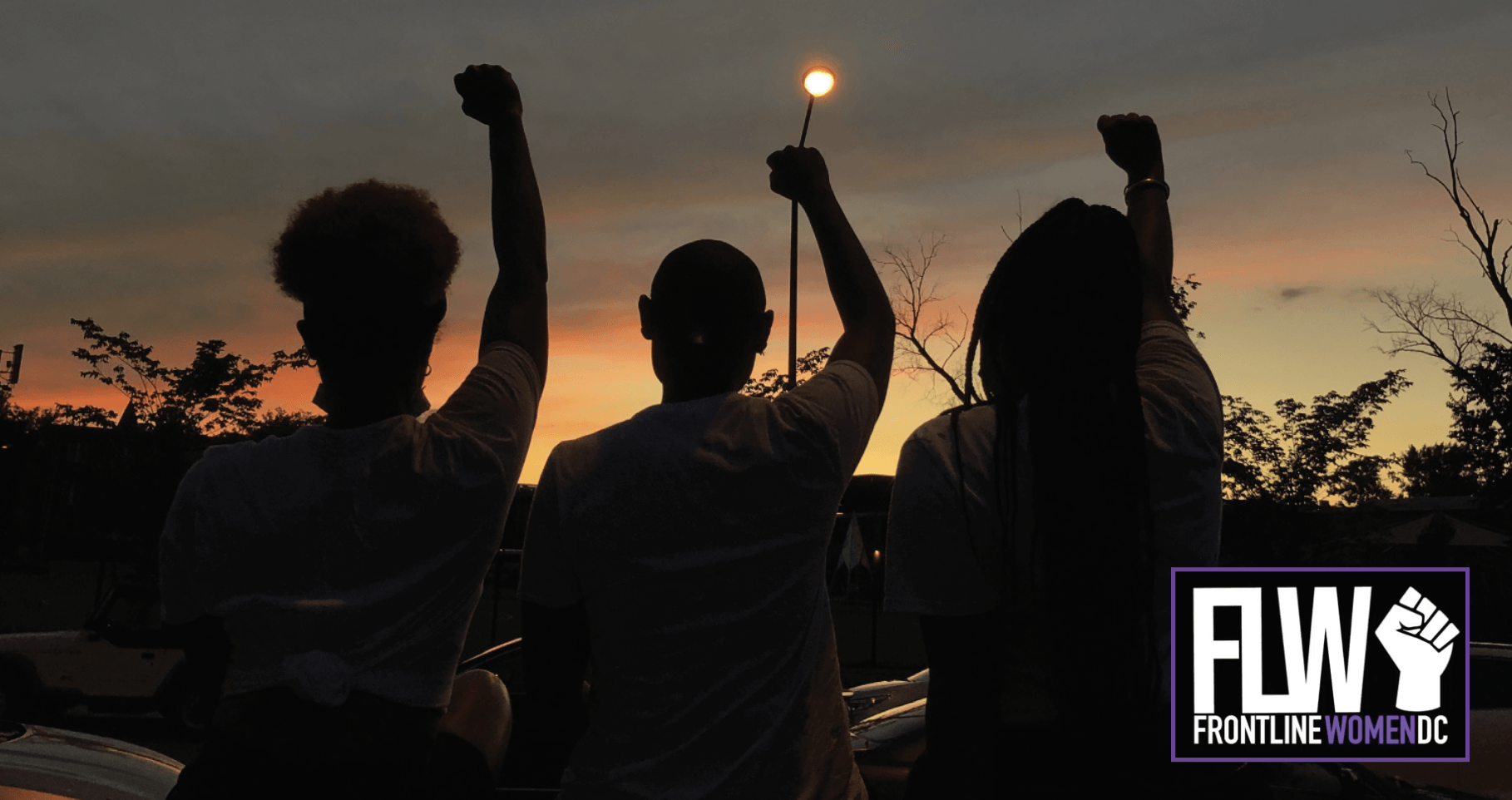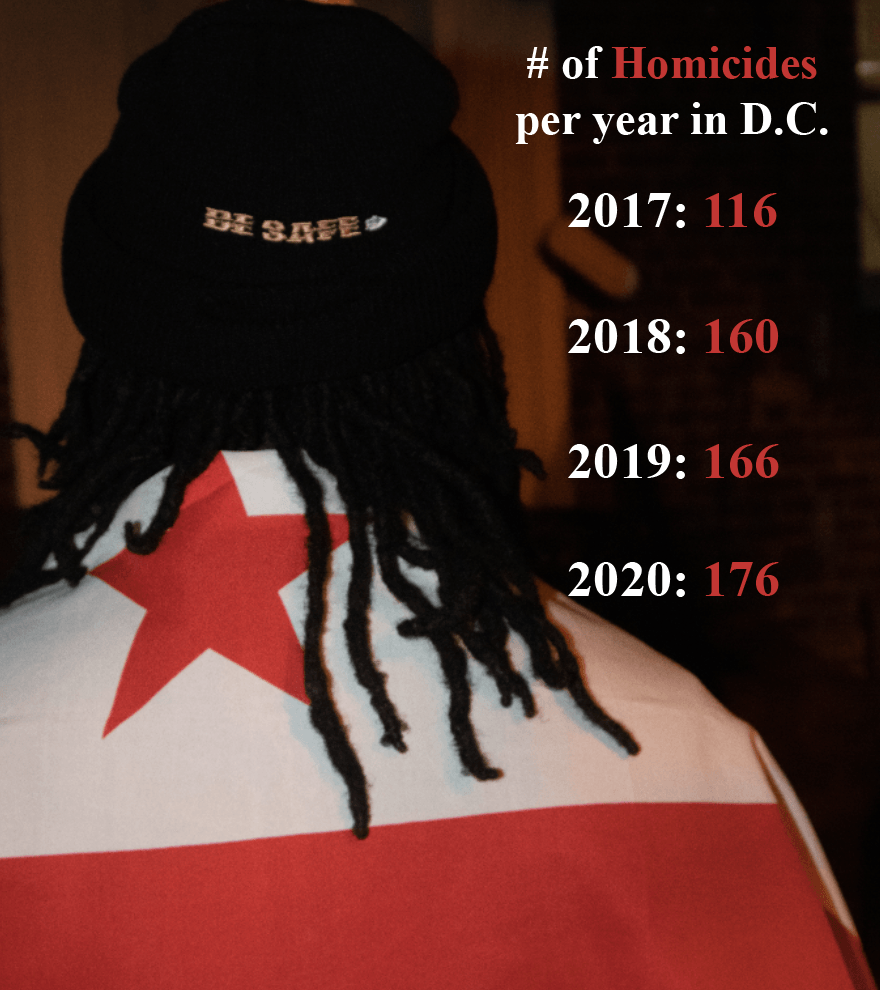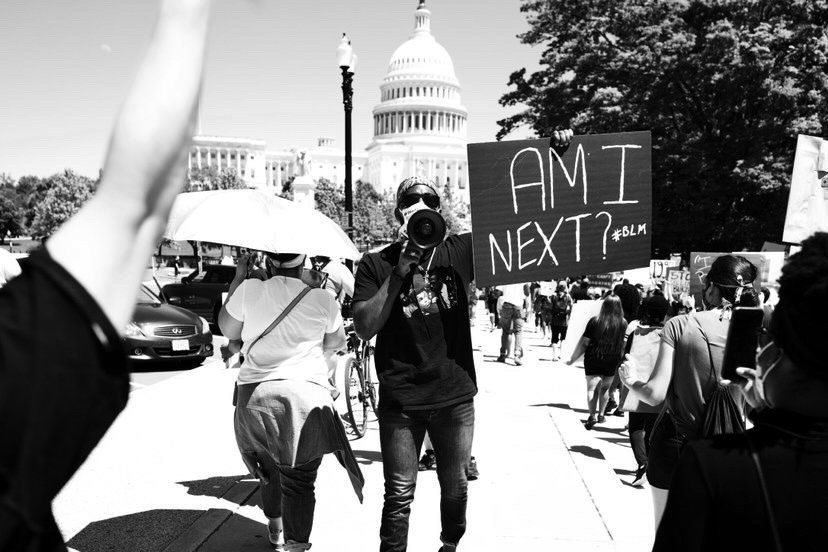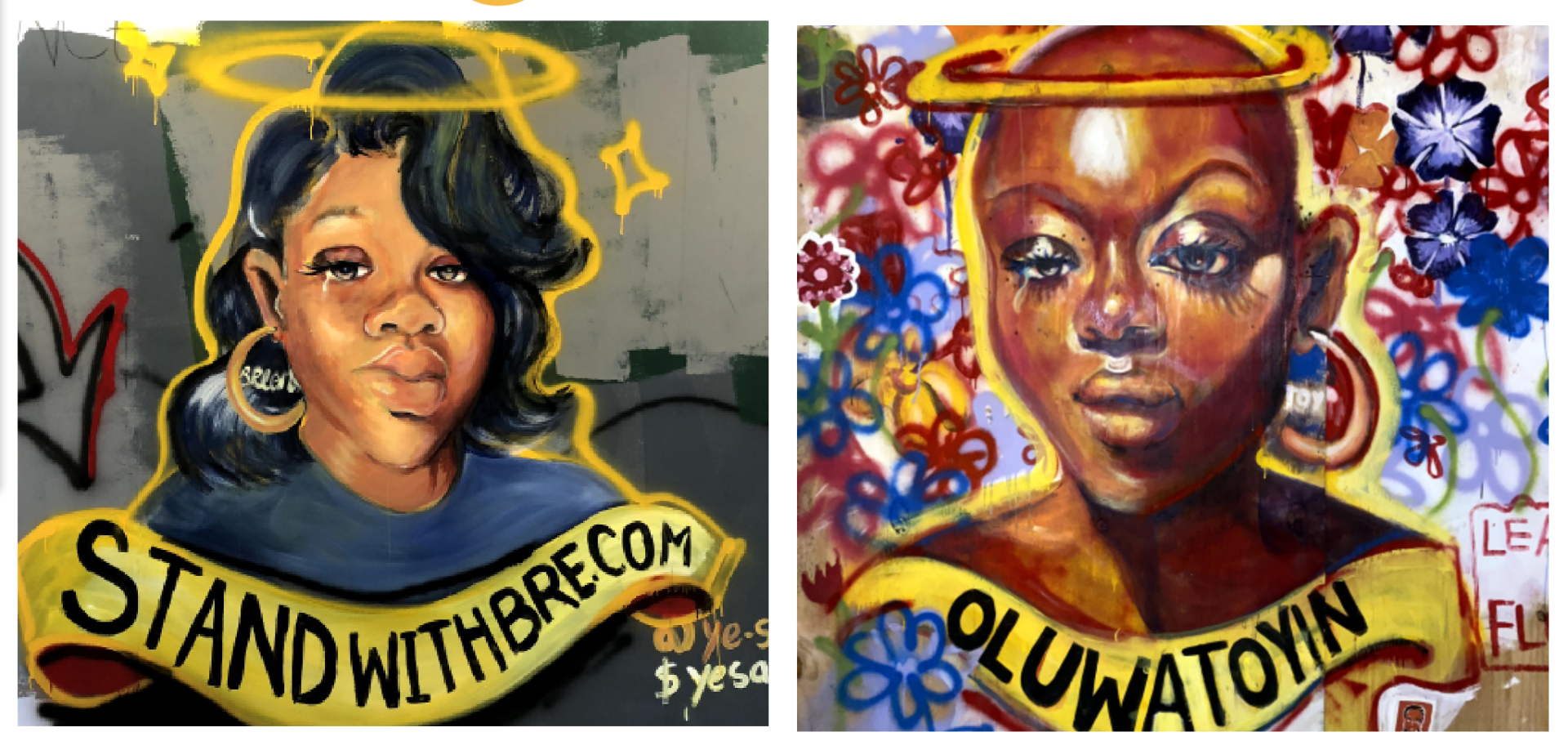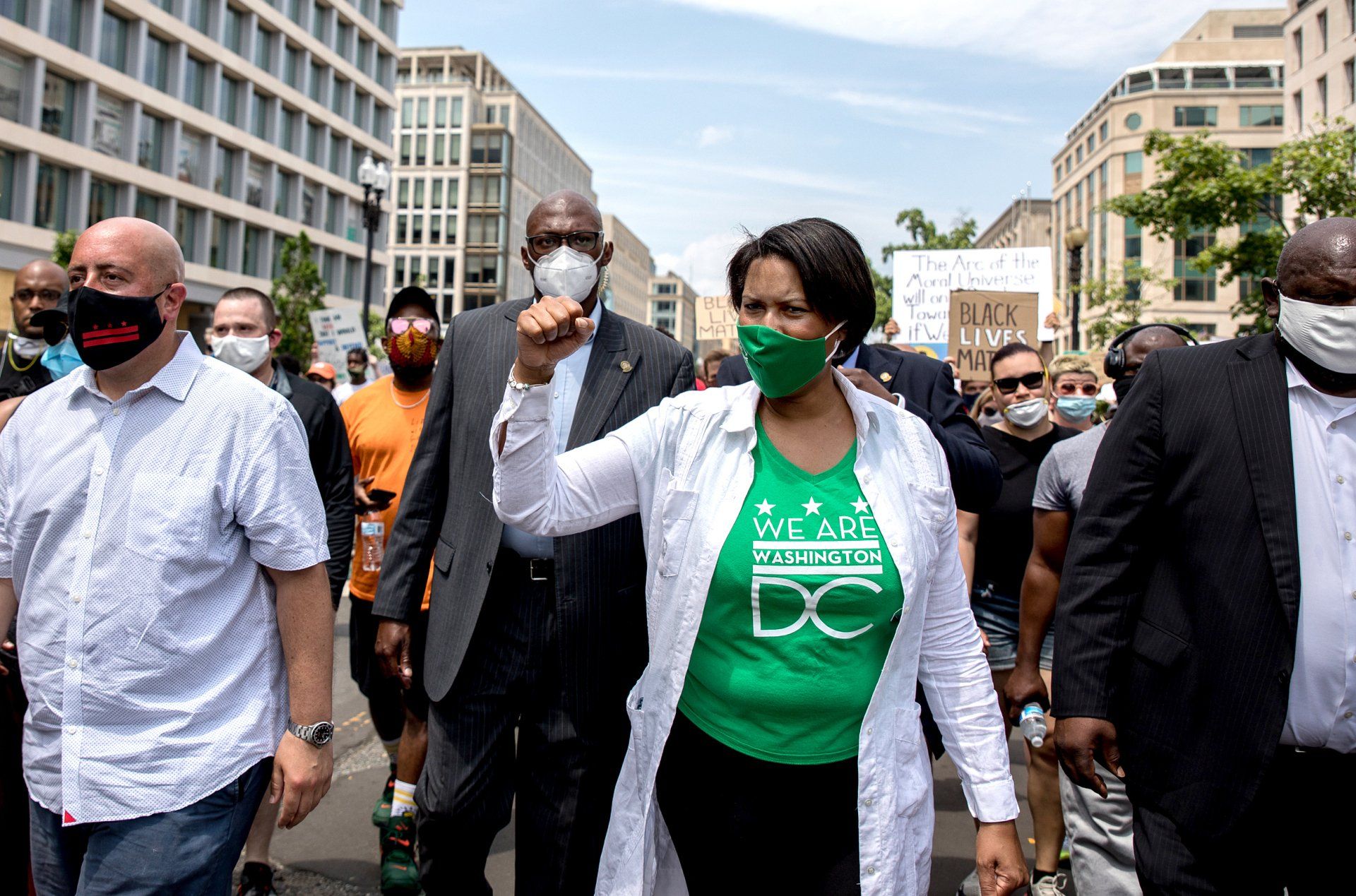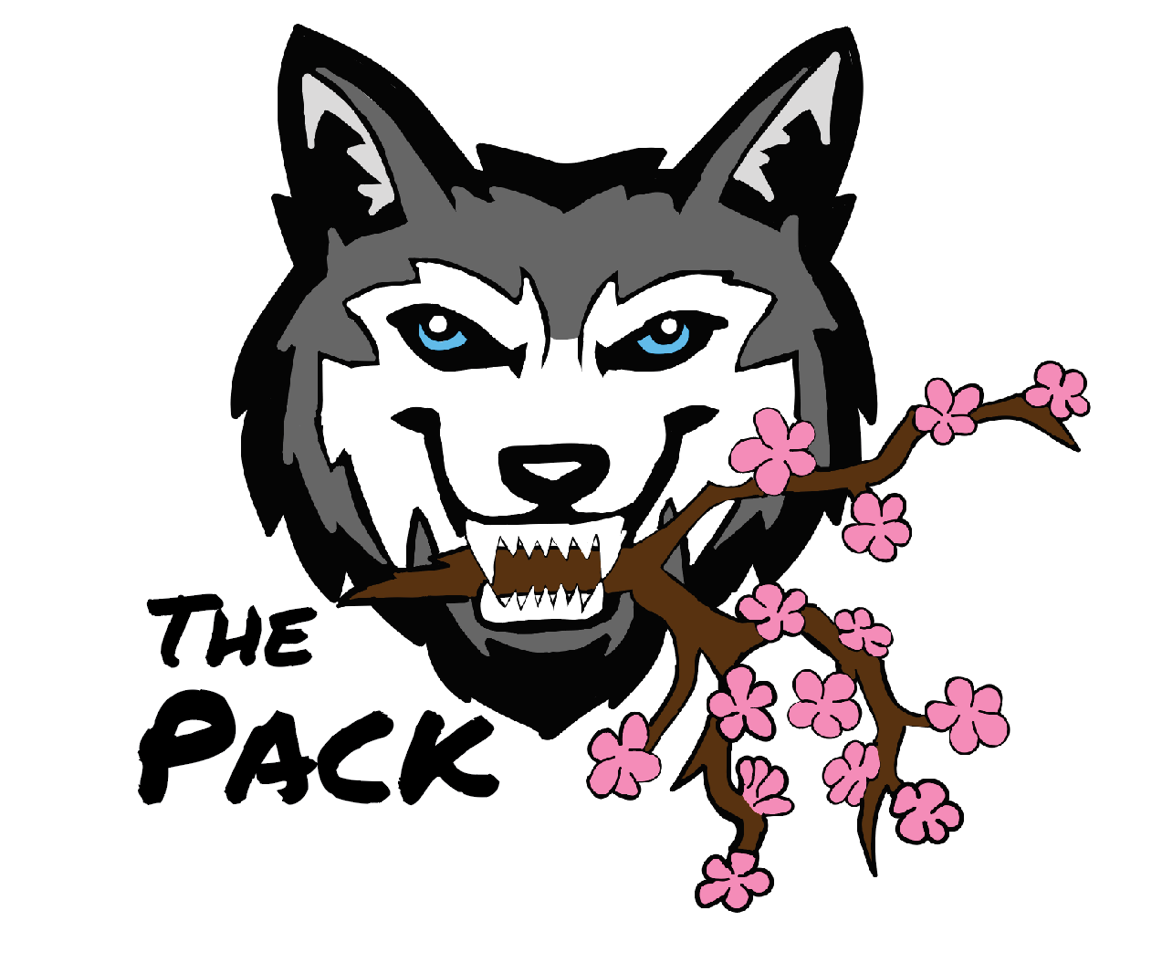In Conversation with Yaddiya: Three years of Moechella, D.C. vs. GoGo, and the future of the Genre moving forward
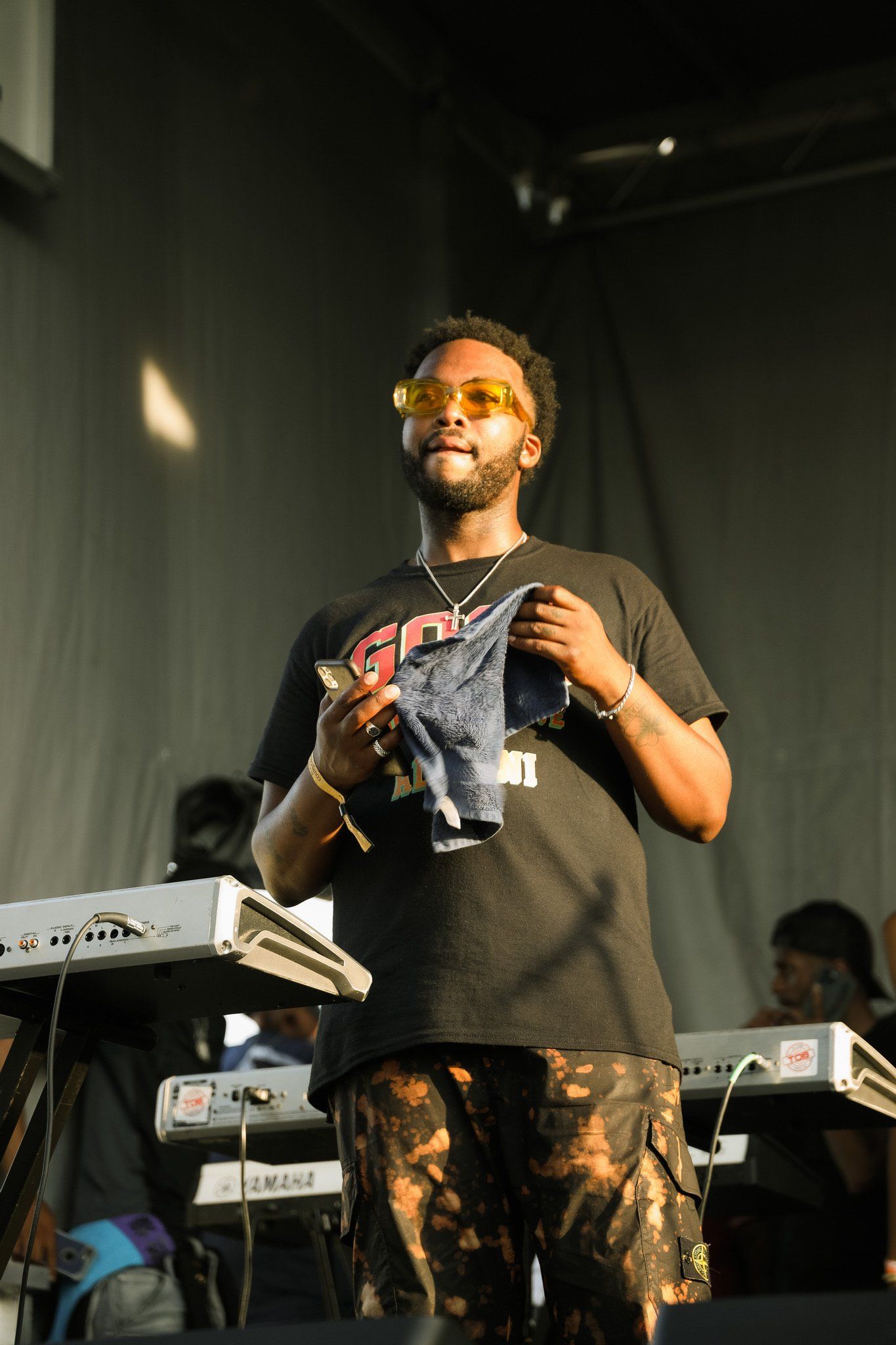
“If you have a black-tie event, you don’t have any problem. But if you bring go-go in, you’re going to have problems.”
This quote from 2005 was stated by retired DC Police Commander Larry McCoy. It captures the sentiment that many police officers and some government officials had toward DC’s native genre. In the early 2010’s gogo stood on its last leg as a cultural giant within the city, as many venues were shut down or reported, citing either violence or loud noise complaints from new neighbors.
Many bands were often surveilled by police, and in 2010, MPD’s GoGo report was discovered, where officers passed around a list of weekly shows and performances, in the hopes of “intervening in violence”
In 2010 Former Prince George's County Police chief referenced TCB gogo shows as , “violence masqueraded as entertainment”.
Ten years later, on February 19th 2020, DC Mayor Muriel Bower signed a bill into law that designated GoGo Music as the official music of DC.
This hillturn of the city's acceptance of gogo has a lot to do with the work of Justin “Yaddiya'' Johnson, and the mobile gogo movement he founded with Moechella. If you have been in DC the past 3 years, it would be very hard for you to not be familiar with the gogo event that often doubles as a form of protest. In 2019 Yaddiya put together years of experience in the gogo circuit and organizing protest against actions of the federal government during the Trump administration, to respond to a local incident involving gogo.
The moment is pretty well known and infamous by now. A white newcomer to DC made a complaint about the gogo music being played out of the Metro PCS store on the corner of 7th and Florida Ave, a tradition that is beloved my DC residents. When the store stopped playing the music, this hit the nerve of Natives across the city, who were already dealing with the circumatsnces of gentrification in many other ways, now it was extending to the music!? The DOnt Mute DC Movement began and the gogo event of all gogo events was created, Moechella.
Yaddiya and Moechella celebrated their three year anniversary on May 21st, 2022 with a concert at the Howard Theater featuring special guests, TCB, New Impressionz, Comedian and DC mayoral candidate Red Grant, DJ and EAT Founder AllHomage, DJ NahFr, and many more.
I caught up with Yaddiya a few weeks before the event, in the midst of his promotion run. We sat on Wisconsin Ave near the National Zoo, and our conversation went as follows:
So you talked about entering the Gogo circuit, and live music at a certain time. How is the market of Gogo different now versus when you first started getting into it?
The market of Gogo is different now because I think when I was coming up and starting to move around in Gogo, it seemed to be way more popular and way more prevalent in the area. I started when I was 18, 19 years old. At that time, that's where a lot of people went to parties every weekend, they went to Gogo spots. Gogo was just super popular. Like I always tell people, I came up in the time in Gogo where you could have Backyard Band next to Jay-Z and people would prefer to go see the Backyard Band. And that's the Gogo I know. Endless shows being organized, everyone wanting to start their own Gogo band. There was an abundance of Gogo bands. You had shows like the CFE 20 for 20 things like that.
People didn't want to be rappers. They wanted to be in a Gogo band.
Exactly. That's why I say rap is the new Gogo, because back then Gogo was the thing. Just like how everyone want's rap now, that's how Gogo was.
So it's definitely different in that way, and that was of course before the emergence of social media, which I think changed a lot of the way people look at their indigenous culture. Back then, when I got into Gogo, people was still wearing urban wear. Certain people were still wearing staples of the culture heavily way more than I see now. So I just think the appreciation behind the culture was just more amplified you know? The culture was more appreciated. And not only was it appreciated, we were actually in the middle of it. We were actually in the center of the culture, actually a part of it, not just appreciating it, we were a part of it. We were creating it. That was the difference.
You just talked about how important Gogo was to culture years back, but now, I feel like the city as far as government reps and police, they’re a lot more accepting of Gogo now versus back then. What do you think about that?
I mean, I wouldn't be able to say that I was involved in certain city politics or had the knowledge of the sentiments of the people in this city as much as I do now. So I wouldn't be able to say that oh they didn't appreciate it or they did. I do know that when I was coming up throwing Gogos, they were starting to push Gogo out of the city. So there weren't many clubs where you could even go to the Gogo in the city anymore. You had to go out to Maryland. Like they wouldn't even allow certain bands like TCB to play. TCB, would've never been at the Howard Theater. Like we got them now in a couple weeks, but back then?
Now they appreciate it more with the creation of Moechella, with the formation of the movement Don't Mute DC, the organization of the movement Long Live Gogo, things like that. They've also seen the way Gogo has sort of been politicized and used to shed light on a lot of the policies that are being passed and a lot of the commentary that's being talked about in the community. So it's been utilized as a tool as of late. I feel that it has not just gotten the attention of natives and the newcomers, but from the people in city politics as well.
So you just talked about the intersection of politics and Gogo. How it's kind of used to shed light on these different issues. When did you first see that connection? Was it just with putting together Moechella and the Don't Mute DC movement or did you always see it?
My first protest was in 2018 where I used Gogo against the amplified noise amendment and that kind of gave me the inspiration behind using music to draw attention, to garner an audience and mobilize people essentially. Not even mobilize people, but just more so create that energy. I always knew Gogo creates a certain energy, especially when people are together in one place and really celebrating it. Shortly after that protest against the amplified noise amendment, I led a protest in front of the white house against the not the current regime, but against the corruption and policies at the time (Donald Trump Administration). And I led the protest for a hundred and eighty five nights and I used musicians every night to basically activate the protest. That was the program.
I'm essentially the front man and I do the commentary et cetera, and the engagement and all those things with the crowd. So that is where I saw how music brought people together and how Gogo music was encouraging people to protest and how people were using these methods to be able to uplift their voice. And I saw how music brought people together. So that gave me even more of an inspiration to use entertainment, to raise political awareness and promote political engagement and voting and all these things. All the things that our community has stopped doing that people and politicians take advantage of.
We don't participate in the political process. We don't have faith in it, and we don't feel like the government works for us so we have lost faith in the system. So we don't even participate, all the while it's still policy being pushed. It's still people that are moving the needle, and moving the country [forward] and we not even paying attention. So I felt we got to use entertainment, something that people love to get them motivated. We are the culture. So we got more of the knowledge of how to garner our audience, who to include, what to make things look like and all that type of stuff. So that really gave me inspiration. When EZ Street told me about the situation with the store on seventh and Florida, I knew a lot of people from the city knew me from my activism, so I was like there's no way I could speak out against what's going on in federal politics and not speak out against something that's an attack on the culture, specifically Gogo, which is the community I come from.
So That was a No-brainer.
It was a no-brainer and then just using Gogo music and my knowledge of the city and just me knowing U street’s a popular intersection and all these types of things, people knowing me, etc. It just created that moment, that's just how it all came about for real.
That was like a huge moment in the city. Like so many people outside of the city covered those initial protests. And you could see aerial shots of a whole block of U street literally listening to Gogo. How surreal was that moment? Did you see it reaching out like that to the masses when you first organized it?
Well, the first one I organized with TOB was pretty big. It was kind of going viral as far as the promotion, when people like Wale, people from the area that got influence were showing their support for it. So it kind of created a spark. And from there, I knew how it is with things in the community, whether it be a food drive, a giveaway or whatever , it's always like one day out of the year or one day once every half of the year. I'm like how we going to create momentum or do it for the city if we just do it once and that's it. We gotta keep it going. So every other week I would do it on Tuesdays. They were always on Tuesdays every other week.
And every other week it would just get bigger and bigger. And after each one, I would definitely feel that adrenaline rush and just that energy, just like you know when you inside of a moment, it's so intense you don't notice what's going on and then afterwards when you see all the footage and all the clips and all the stuff on social media, it's a little bit overwhelming. So the second one, I was starting to get that vibe, like damn, like couldn't sleep reall the same night cause I'm just still thinking about it. Cause I'm literally in the middle of it all, and I'm like damn this is crazy.
Yeah. And since then you talked about being creative and having these outlets. Since then you've done a book, you've done clothes. I've seen artwork and posters on the streets...
Endless.
It seems like you're always figuring out a new creative way, like a new outlet. What inspires you?
Creating………
**Yaddiya’s phone rings**
Hold on one second. Hold on one second. Cause I forgot to do something.
I gotcha.
**Yaddiya pauses the interview to finish placing a poster order for the upcoming Moechella 3 Year Anniversary show at the Howard Theater on May 21st 2022.**
My bad

All good, we can pick up.
I was saying, since then you've done a book. Clothes. There's so many creative outlets. What inspires you to venture into those fields like poster artwork? You literally just ordered some posters when we were talking?
I'm overall a creative person, so I always think of different ideas. I always watch what's going on. I also have a lot of different interests, so I always look at how I can create certain partnerships and create certain products that embody how I feel or will represent some of my interests. I feel like that's only natural. So everything I do, I want to at least have a passion for it. I never just want to sell something just because I feel like it'll make me money. Whatever I do. I wanna make sure that it's a part of me and that I enjoy doing it. You got to diversify the brand, diversify the revenue streams and all those things. That's what's going to ensure that I can continue to do what I'm doing.
So we're coming up on the three year anniversary of Moechella. And by the time this is out, you would have already had your event at the Howard theater. You’re collaborating with a bunch of people from the city, like, AllHomage of EAT, DJ NahFR, Red Grant, TOB, and on and on. How do you feel about all of this support so far? You're three years in and still going
See the thing is bro, when people do this, I don't look at it like it's for me, I look at it like it's for the city. So it's like, I'm just the person that God is working through. I'm just the person that's like, I don't know if it's the purveyor, but I'm just the catalyst, you know what I mean? So I feel like when people say they want to be a part of it, that's dope as shit. At the end of the day, I'm always just thinking about how I could make it bigger. Because at the end of the day, that's all that matters. Going to a new level. That's only gonna happen through bigger partnerships, more support and involving people. That's always been the vision, to involve people.
What is it like doing something at Howard Theater? Like you said earlier in this interview, the city took away gogo venues to a point where they almost pushed gogo out of the city. So to be able to have gogo performed in the city, especially in a historic place like Howard Theater, what is that like?
Man, it's great to be able to have that support. At the same time, it's also kind of a fruit of my labor, to create that openness, like the Kennedy Center partnership, Howard Theater, all these different venues that allow gogo. At the same time, gogo has been iconic for the city. I just think that I was able to help give it a new spark and continue a new wave. Now I got people like yourself, younger people interested in coming back to Moechella. High school kids. We need that to be able to keep it going. I feel like I'm representing the new era.
Speaking of High School, you were just at Duke Ellington with a couple bands and there's videos of the kids interacting with it. Talk to me about that.
It shows that it's really in the spirit. It's really in the DNA of the kids in the area. It's never going to leave. It's truly cultural. These moments truly show you that. So it's not the fact that people don't love it. It's just that the people in gogo got to do what they need to do to continue to help it evolve. Like we said before, it was a time everybody wanted to be in a band. You had bands of 14 year old, 15 year old kids. Now it's not like that. We need more of that. How do we do that? Make it cool again.
Was it initially difficult to find spaces that wanted to host Gogo? And has it been easier since you started?
I mean the way I utilize Gogo is not too much like, oh, I need to book this venue and do this, that and the other. At the same time, I definitely see more of an openness. Like I said, TCB would've never been able to play in the Howard Theater in my mind.
**We both laugh**
Nah, I agree with you.
You know what I'm saying? So I see it.
Five years from now, where do you see Moechella and this movement at?
Man, five years from now I definitely see it worldwide. Like I see myself being able to garner and create an audience and fanbase independently and I see us being able to tour with Moechella. Just us being the core essentially, kind of what we've been building and just surrounding that with other artists, and I feel like we'll be able to take it worldwide. Partner with other festivals, have a stage at other festivals. Like it's all about the exposure and the consistency. So we keep doing things like going to LA, doing it, bigger, better partnerships, getting people to come to this. Make some good records. Start really being able to push the records. We need to stop trying to make Gogo mainstream and just make the mainstream love Gogo. And that's what I feel like people be missing. They be trying to make Gogo be like rap records. That don't make sense.
You're taking Gogo to the west coast with some events. What do you think of the reception of Gogo in LA? Cause I know some DC people end up traveling there and the ones that are on that side love to see it come over there.
I think the ones on that side, they just love that DC coming to LA, they don't give a fuck. It could be fucking who the fuck knows, you know what I'm saying? As long as it's Gogo, I feel like they're going to give it a shot.Thankfully Moechella just got that name with it. It just got that recognition to where they like, oh Moechella coming? Bet.
Moechella’s name is way bigger than mine. So it's like, that's tight. That's saying something. I feel like people just got that pride for the city, man. We was out Utah, whoever in Utah from DC, they coming!
I don't ever have an expectation as far as the audience. I always like to position that shit to get in front of a new audience. That's what it's more about for me. The people that's out of town from the city. I look at them like promoters. Cause I'm like, man, y'all need to promote y'all culture and bring y'all men from there, here. It's lit you feel me? So I'm always wondering how we could expose it to more people. I feel like the live experience is definitely going to sell Gogo to people. And if we could find a way to pitch that live experience. I feel like that shit is definitely going to get more people interested in coming to the Gogo. I feel like Gogo could be one of the best and biggest hard ticket selling fucking draws. Cause ain't nothing like a live Gogo, right? Am I lying? Right or wrong?
Nah. And that was the only thing growing up, like the girls would actually be dancing to Gogo and that was what you would actually dance with girls to.
But think about this. Niggas go every week and pay to get in. It's just the way niggas doing the industry. It's no real organization. Then it's not enough fans for it to be unorganized on a national level. We gotta make more fans.That's what that shit really about. And I feel a lot of people feel possessive over that shit. Like, nah, you can't like this, you know what I mean? They see a white person in there or something and they like, man that's our shit and its like damn, how the fuck ya'll think y'all about to get the money if y'all don't let everybody love it.
Big white folk love Tupac. That nigga didnt say nah, this black people music like. We got to be more open.
You're introducing Gogo to a new generation of Washingtonians. And some of that includes people who are new to this city. What do you think about their relationship with Gogo?
The new people that I see love it. It's crazy cause I even got a friend, one day we did something at Union Market. Even she was complaining like, man, it was so loud. But it’s like, white people really do love it. This is not even just about white people. People [in general] love live music.
I feel like everyone loves live music. When I see people in the street, like when we are on the truck and shit man, they love it. They root for it. I hear people say, “that’s the Gogo truck!”
What do you love most about DC?
No matter where you go around the world, you always can notice somebody from DC. It’s just different. You can see the best of the best to the pits of the pit in DC. The culture is definitely unique. It's definitely got that spiritual vibe to it, especially the black people here. You've never met anything like the black people in DC, I'm telling you, You've never met anything like that. So it's just that special little thing that all people from the area got with them, and you always can notice it. It's not really something you can explain you know? Even just like the accents, all the slang.The mentality. The give no fucks mentality. That shit is crazy bruh. Like you don't even notice how people perceive us till you leave from here.
